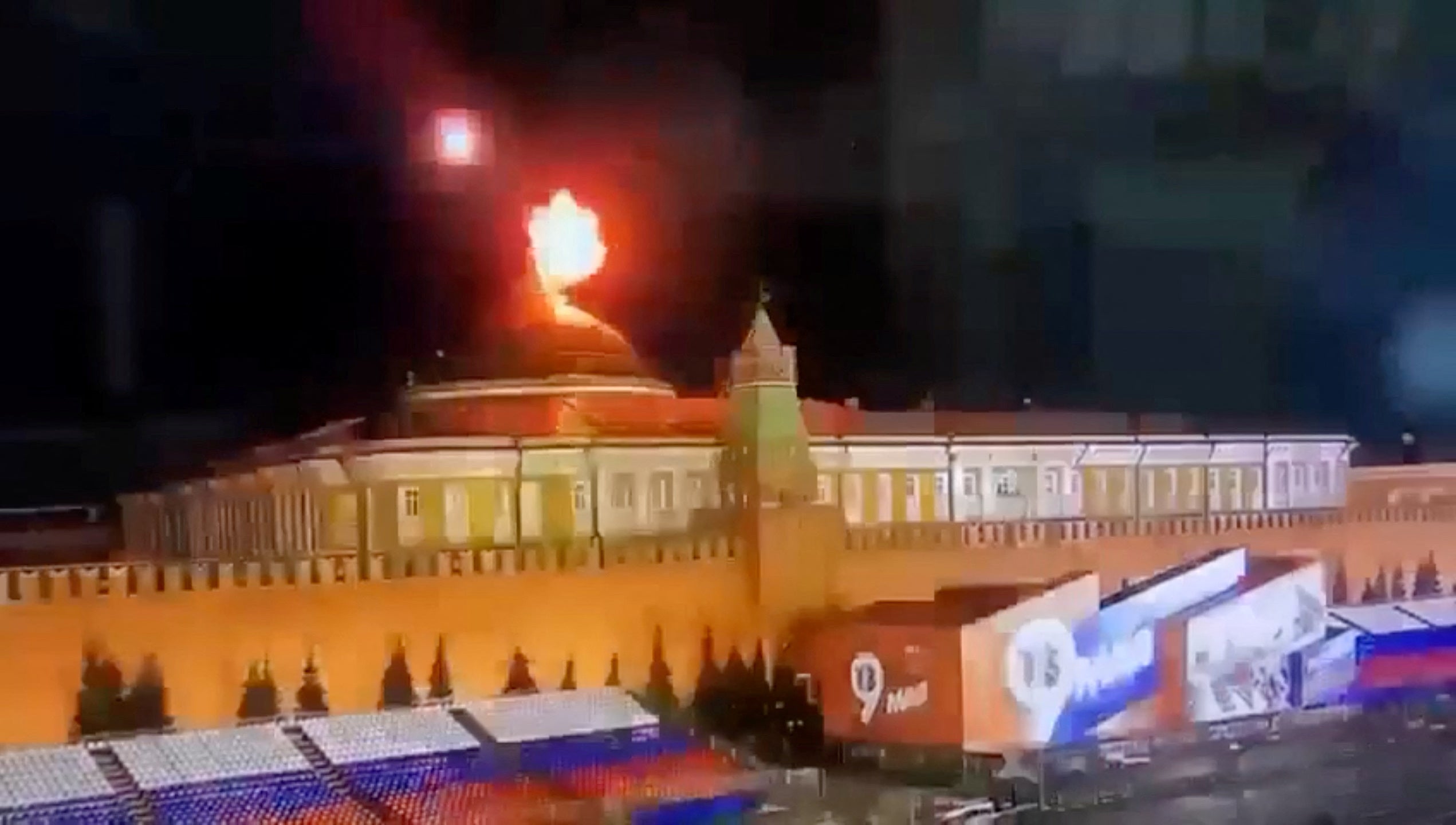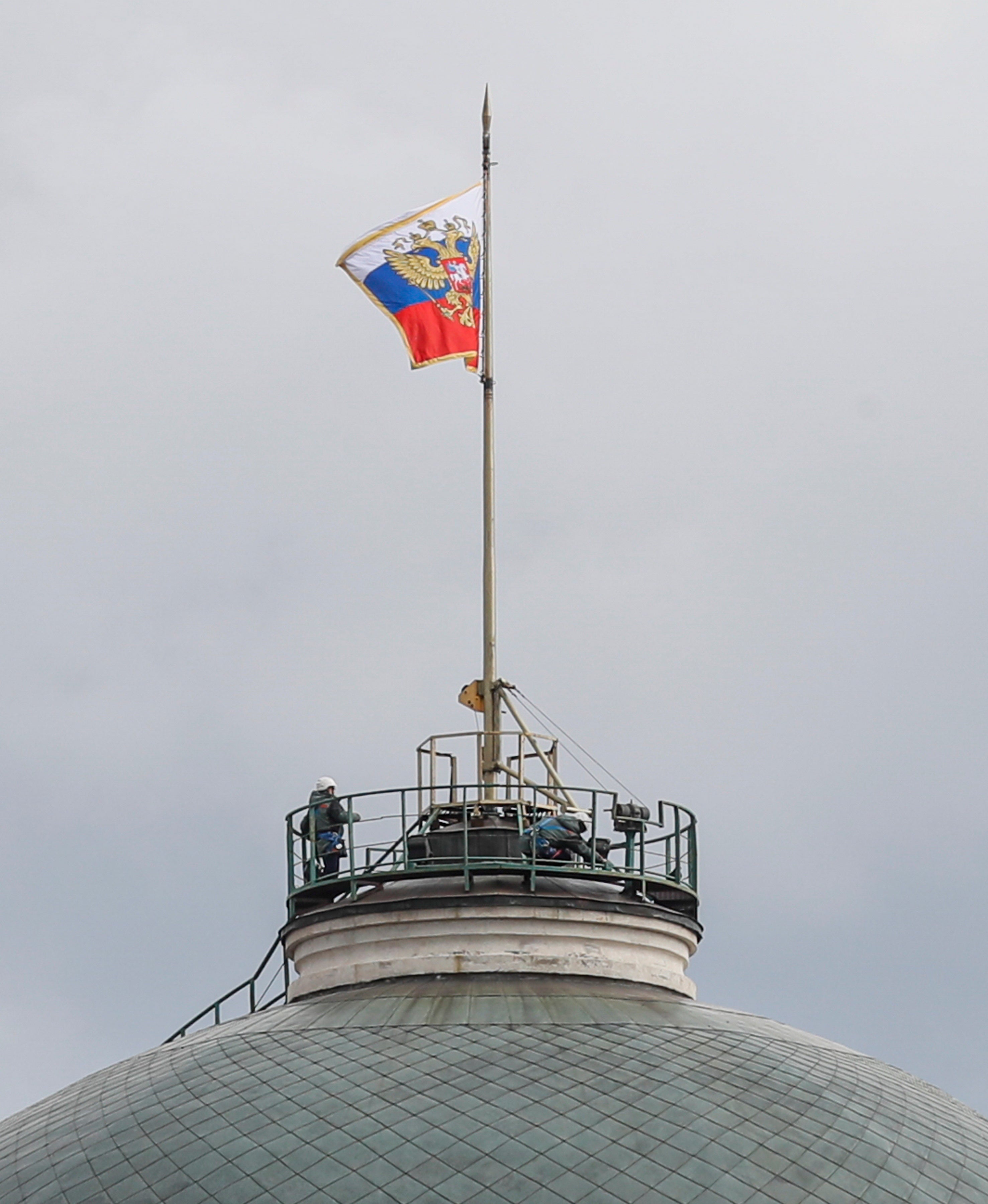What we know about the drone attack on Kremlin: False flag operation or Putin’s humiliation?
Drone attack has sparked Russian calls for elimination of Zelensky, as experts say it could be pretext to escalate violence in Ukraine
Your support helps us to tell the story
From reproductive rights to climate change to Big Tech, The Independent is on the ground when the story is developing. Whether it's investigating the financials of Elon Musk's pro-Trump PAC or producing our latest documentary, 'The A Word', which shines a light on the American women fighting for reproductive rights, we know how important it is to parse out the facts from the messaging.
At such a critical moment in US history, we need reporters on the ground. Your donation allows us to keep sending journalists to speak to both sides of the story.
The Independent is trusted by Americans across the entire political spectrum. And unlike many other quality news outlets, we choose not to lock Americans out of our reporting and analysis with paywalls. We believe quality journalism should be available to everyone, paid for by those who can afford it.
Your support makes all the difference.Viral videos of two drones exploding over the Kremlin, the residence of the president in Moscow and symbol of Russian power, have set off a frenzied cycle of claims and counterclaims, with the suggestion that Ukraine attempted to assassinate Vladimir Putin sparking both shock and skepticism.
Russia has accused Ukraine of carrying out what it called a “planned terrorist act” in an attempt to eliminate Mr Putin, saying two unmanned aerial vehicles deployed in the mission were neutralised by the Kremlin’s defence systems.
Ukrainian president Volodymyr Zelensky has denied the allegations, saying “we don’t attack Putin” and “we fight on our territory”.
Wednesday’s incident represents the latest escalation in the more than 15-month-long war between Russia and Ukraine and has ignited speculation about it being a false flag operation that Moscow will use as a pretext for a nuclear strike on Ukraine or an attempt on the life of Mr Zelensky.
A number of questions – why the Kremlin did not comment on the apparent failure to intercept the drones before they reached the heart of the compound, and why the announcement came about 12 hours after the incident – have only fuelled the doubts over the attack that came ahead of Russia’s Victory Day parade.
Here’s what we know so far.
Russia’s claims of drone attack
Two videos which are being widely shared on Russian social media channels showed two objects flying one after the other towards one of the highest points in the Kremlin complex, the dome of Senatskiy Dvorets (the Senate Palace), which is the heart of Moscow’s most secure area.
The clock on the nearby Spassky Tower showed 2.27 and 2.43 in the early hours of Wednesday. The first attack was neutralised leaving a puff of smoke and the second caused the burning wreckage of the drone to fall onto the dome.
"As a result of timely actions taken by the military and special services with the use of radar warfare systems, the devices were put out of action," a Kremlin statement said.
"We regard these actions as a planned terrorist act and an attempt on the president’s life, carried out on the eve of Victory Day, the 9 May Parade, at which the presence of foreign guests is also planned."

The attack prompted Russian leaders to call for retaliatory action against Ukraine with former Russian president Dmitry Medvedev calling for Mr Zelensky’s elimination.
"After today’s terrorist act, no variant remains other than the physical elimination of Zelensky and his clique," said Mr Medvedev, who is now the chair of the Russian security council.
Mr Putin’s spokesperson, Dmitry Peskov, said the president was not in the Kremlin at the time of the attack and no one was injured.
Response of Ukraine
Ukrainian president Mr Zelensky, who is on a visit to Finland, said Kyiv had nothing to do with the reported overnight incident.
"We don’t attack Putin, or Moscow, we fight on our territory," Mr Zelensky told a press conference.
A senior aide to Zelensky, Mykhailo Podolyak, said it "clearly indicates the preparation of a large scale terrorist provocation by Russia in the coming days" at a time of potential turning point in the war as Kyiv prepares to mount a long-anticipated counteroffensive.
False flag operation?
Several experts have raised doubts over Russia’s claims and countries like the UK and US are treading carefully on the claims.
A drone attack on the Kremlin would be the most severe penetration of a weapon into Russian airspace in around 36 years.

The acknowledgement of such an attack could amount to humiliation for Mr Putin and undermine Russian citizens’ trust in its assertions of defence superiority at a time when people are living with war raging on their borders.
“If we presume it was a Ukrainian attack, consider it a performative strike, a demonstration of capability and a declaration of intent: ‘don’t think Moscow is safe’”, Russia specialist and security analyst Mark Galeotti wrote on Twitter.
The British expert on Russia said it was unlikely that the alleged attack was planned to target Mr Putin, who “notoriously rarely goes to the Kremlin, let alone stays there overnight”.
The incident also coincides with preparations for Victory Day on 9 May, which is marked with a military parade across Red Square, under the Kremlin walls.
When asked about Russia’s alleged intent to assassinate him, Mr Zelensky said: “It’s very simple. Russia has no victories. He [Putin] can no longer motivate his society, and he can’t just send his troops to their death any more … now he needs to somehow motivate his people to go forward.”
Mick Mulroy, ex-US deputy assistant secretary of defence and CIA officer, told BBC News: “Russia may be fabricating this to use as a pretext to target President Zelensky – something they have tried to [do] in the past.”
The White House said on Wednesday it was aware of the reports but they are unable to confirm the authenticity of them at this time.
US secretary of state Antony Blinken said he would regard anything coming from the Kremlin "with a very large shaker of salt".
British defence secretary Ben Wallace said he “wouldn’t take at face value comments by Russia” and they are assessing the reports.
“We’ll obviously assess what we’ve seen in the open media and then we’ll probably issue a comment later but at the moment I’m not going to make a comment because it’s pretty much been a one-sided comment by the Russians and I think what we’ve learnt in this whole conflict is I wouldn’t take at face value comments by Russia,” he said.
Phillips O’Brien of the University of St Andrews said the aim of it could be “to make Ukraine look reckless, either to weaken Western support or try to shore up Russian domestic support”.



Join our commenting forum
Join thought-provoking conversations, follow other Independent readers and see their replies
Comments